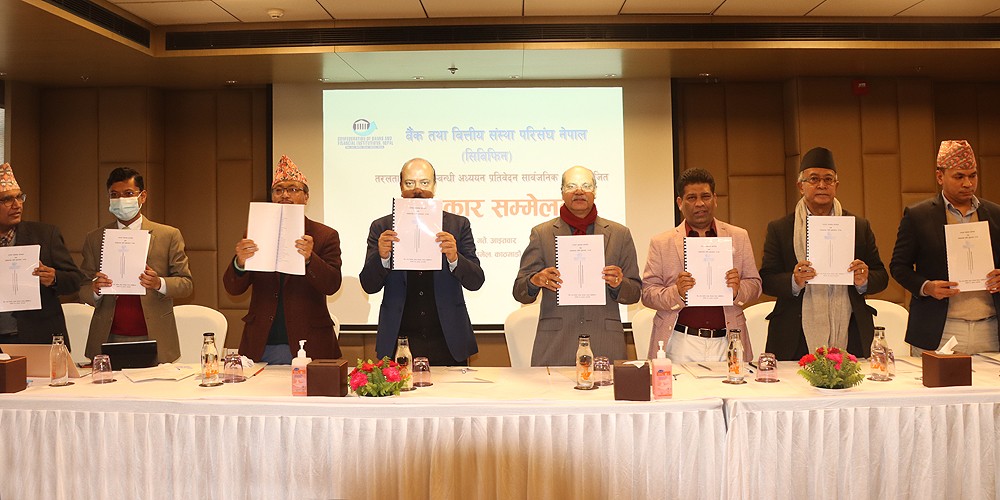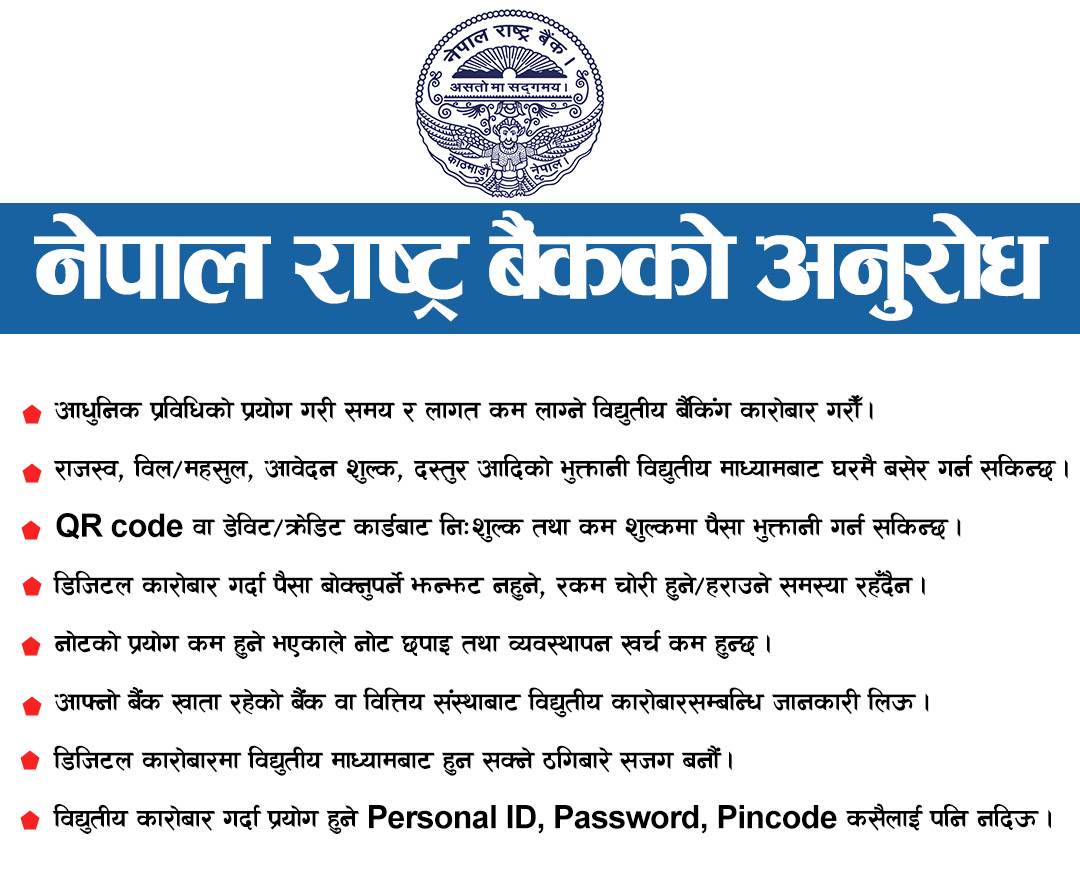Banks are ready to 'compromise' on profits but NRB must reforms to policy
Feb Sun 2022 04:29:26
1098 views

Kathmandu. The Confederation of Banks and Financial Institutions (CVIFIN) has concluded that the unnecessary policy arrangement of Nepal Rastra Bank has also shown liquidity problem. This is the conclusion reached by the study task force on liquidity shortage formed by CVIFIN.
At a press conference held on Sunday to release the study report, Civifin concluded that the lack of liquidity was due to liquidity imbalance brought about by the deposit mix, credit investment in unproductive sectors, increase in imports, unregulated remittance imports and low government capital expenditure.
According to Sivifin, the tendency of Nepal Rastra Bank to bring policy without discussion is to create an environment where it can move forward in a coordinated manner by holding intensive discussions with the Confederation of Banks and Financial Institutions Nepal, Nepal Bankers Association, Development Bankers Association Nepal and Nepal Financial Institutions Association.
‘Nepal Rastra Bank has never given enough time to implement the policy it has brought, for example, it has been given only 2 years to increase its capital by four times. In 2078/79, banks were not given a grace period to comply with the CCD ratio of 90 percent of the CD ratio. Overall, according to banking data, the CD ratio from CCD did not seem to make much difference, but it did exceed 90 percent of any bank. Banks began shifting deposits to comply, which caused panic in the banking sector. On the other hand, the policy was not even discussed with the stakeholders. It seems appropriate to seek advice and suggestions from the parties as well, 'the study report states.
The study report states that the possibility of setting a target to expand other banks and financial institutions will be less, citing the example of a bank expanding its business aggressively in the meeting of the Board of Directors after the decision was taken by the Confederation of Banks and Financial Institutions Nepal. This will reduce the risk of aggressive business expansion and increase the likelihood of a balanced business expansion, according to a study report by CVIFIN.
CVIFIN has also shown the way to solve these problems due to lack of liquidity. It is suggested that liquidity imbalance brought about by the deposit mix, debt investment in unproductive sectors should be tightened, imports should be tightened, remittance imports should be regulated, liquidity imbalance brought by the credit mix and increase in government capital expenditure and process oriented payment system should be improved.
Similarly, Bal Narasingh (BN) Gharti, a member of the task force, said that the problem was seen when banks were only targeting profits. According to him, the banks are of the view that there is a problem in the banking sector due to the pressure of the operators.







